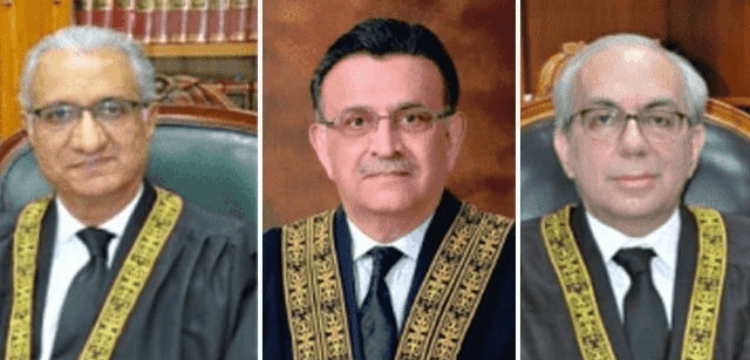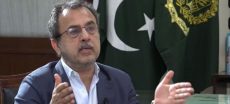[vc_row][vc_column][vc_column_text dp_text_size=”size-4″]ISLAMABAD: The three-member Supreme Court (SC) bench hearing the Pakistan Tehreek-e-Insaf (PTI) appeal contesting the delay in Punjab polls ruled on Tuesday that the Election Commission of Pakistan’s (ECP) decision was “unconstitutional.”
The Supreme Court has announced that general elections to the Punjab Assembly would take place on May 14.
Chief Justice of Pakistan (CJP) Umar Ata Bandial presided over the bench, which also included Justice Munib Akhtar and Justice Ijazul Ahsan.
The court ruled that the ECP’s decisions delaying provincial assembly elections until October 8 were “illegal” and “unconstitutional.” “The law does not allow the ECP to extend the election date,” the court ruled.
The court has ordered the government to deliver Rs21 billion in election funding by April 10. The verdict also indicated that if the government did not comply, the court would issue necessary orders.
Earlier in the day, the Ministry of Defence, in accordance with the Supreme Court’s directions, presented a report detailing the availability of security troops for election responsibilities through Attorney General of Pakistan (AGP) Mansoor Awan.
After reviewing the findings, the Supreme Court issued its decision, reinstating the original schedule with modifications.
Read More: Security report submitted to SC bench hearing polls delay case
The Supreme Court directed that nomination papers be accepted until April 10 and that the candidate list be published by April 19.
The Court further stated that free and fair elections must be held on the new polling date.
The bench also stated that “additional problems were presented during the hearings,” and that two judges had recused themselves from hearing the case.
The case’s proceedings, which lasted more than a week, were marred by high drama after two of the original five-member bench’s justices, Justices Jamal Khan Mandokhail and Aminuddin Khan, recused themselves from hearing it. Following that, the chief judge convened a bench comprised of himself, Justice Ahsan, and Justice Akhtar to hear the PTI plea.
Previously, the government requested the formation of a full court to hear the matter through AGP Awan. It further requested that the PTI case be dismissed in view of what it saw as a “4-3” judgement made by the Supreme Court on March 1.
Earlier in the day, the Supreme Court bench appeared irritated by the government’s declaration of ‘no-confidence,’ and refused to listen to the arguments of the ruling parties’ counsel before reserving the judgement.
Akram Sheikh, a lawyer representing the Pakistan Muslim League-Nawaz (PML-N), declared that he appeared before the Supreme Court to assist it. He claimed that if a party asked him to support something illegal, he could make his own decision. The lawyer went on to say that he had the utmost respect for the Supreme Court.
The chief judge expressed admiration for Sheikh, Farooq H Naek, and Kamran Murtaza. The ruling parties, however, have indicated their dissatisfaction with the three-member bench hearing the case.
He further stated that Sheikh was not appearing in court on his own behalf, but rather on behalf of a political party.
Furthermore, Judge Akhtar stated that the lawyer’s power of attorney was not filed in a personal capacity, and that the government’s position was transmitted to the court by its employees via a statement issued on the PML-Twitter N’s account.
At the hearing, the CJP stated that the SC relied on the harmony of its judges. While judicial processes were made public, he observed that talks among judges were deemed internal concerns.
Judge Akhtar, on the other side, noted that if the “logic behind the 4-3 ruling” is adopted, the case will be referred to the same nine-member bench that was originally formed to hear the elections suo motu proceedings. He went on to say that the decision would then be made by either the five-member or nine-member benches.
Judge Bandial pointed out that the judges’ dissenting comments made no mention of the bench’s reconstruction.
Earlier in the hearing, the court ordered the defence secretary to provide a classified report explaining why the military forces are unable to fulfil security tasks in general elections for provincial assembly.[/vc_column_text][/vc_column][/vc_row]











